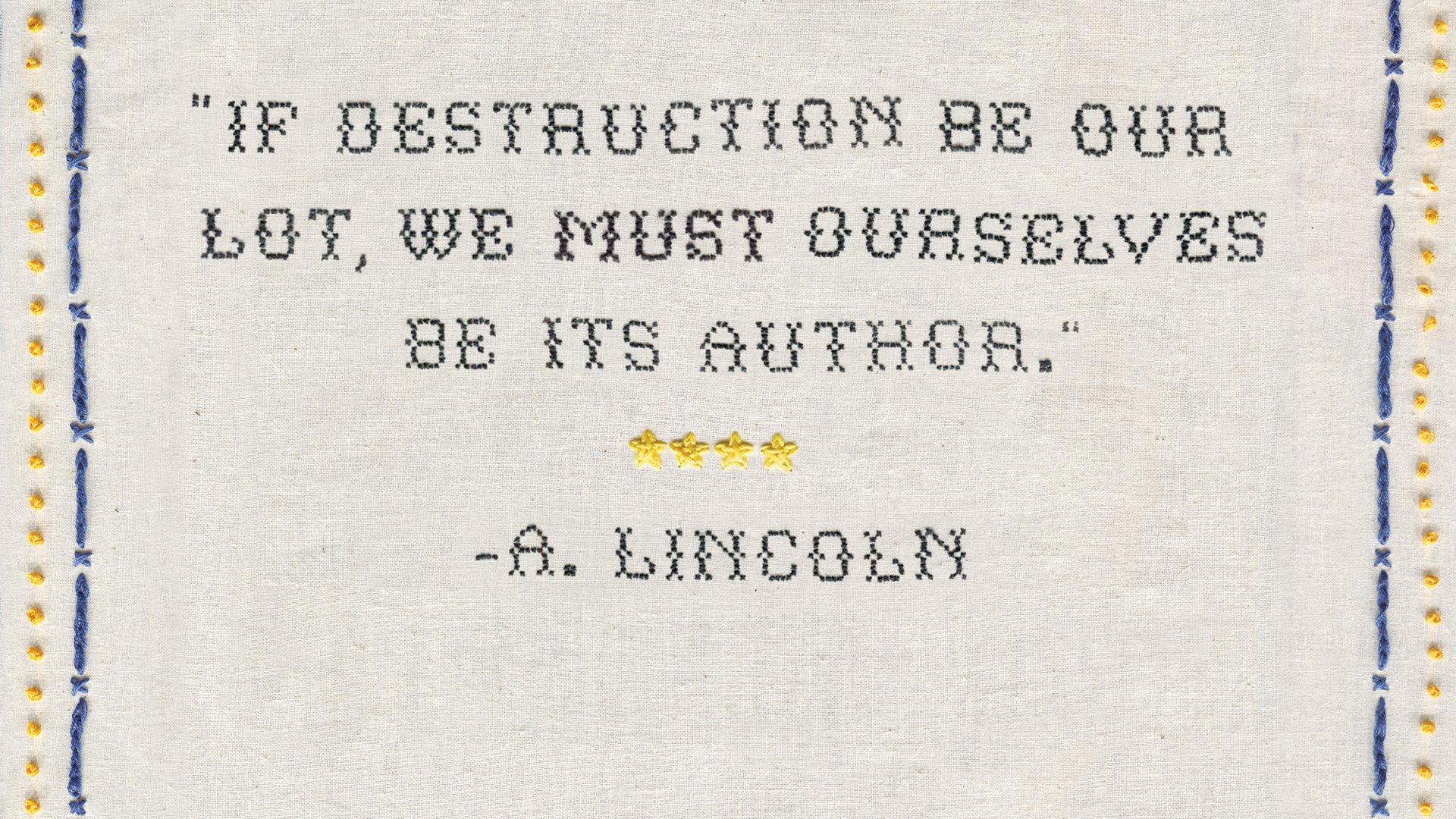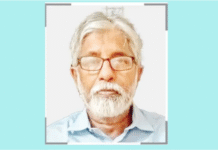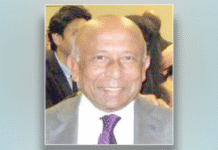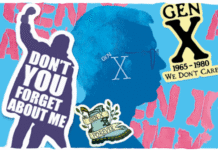The Enemy Within
Our grasp on what it takes to sustain a democracy is slipping.

In 1838, Abraham Lincoln gave a speech to the Young Men’s Lyceum in Springfield, Illinois. The subject was citizenship and the preservation of America’s political institutions. The backdrop was the threat posed to those institutions by the evil of slavery. Lincoln warned that the greatest danger to the nation came from within. All the armies of the world could not crush us, he maintained, but we could still “die by suicide.”
And now, today, we look around. Our politics are paralyzing the country. We practice suspicion or contempt where trust is needed, imposing a sentence of anger and loneliness on others and ourselves. We scorch our opponents with language that precludes compromise. We brush aside the possibility that a person with whom we disagree might be right. We talk about what divides us and seldom acknowledge what unites us. Meanwhile, the docket of urgent national issues continues to grow—unaddressed and, under present circumstances, impossible to address.
Are we unaware of the consequences of national fracturing and disunity? Do we want to bequeath such a country to our children? Have we taught them the principles that citizens of this democracy must live by? Do we even remember those principles ourselves?
Here is what we seem to have forgotten:
America is not some finished work or failed project but an ongoing experiment. And it is an experiment that, by design, will never end. If parts of the machine are broken, then the responsibility of citizens is to fix the machine—not throw it away. The Founders, with their unsentimental assessment of human nature, brought forth a constitutional system robust enough to withstand great stress and yet capable of profound correction to address injustice. (The Thirteenth Amendment, which abolished slavery. The Nineteenth Amendment, which gave women the right to vote.) The scale of the Founders’ achievement was unprecedented. Except in small pockets here and there, a democratic system such as ours had never before been tried; the Founders applied it to a nation that would soon span a continent. I think of our own document’s durable capacity when I consider the travails of the United Kingdom, which lacks a written constitution. The lesson is not that we can sit back in relief. It is that we must continue conducting the experiment.
Defects are part of the human condition. In a way, this is good news. Our imperfections can—and ought to—draw us together in humility, realism, patience, and determination. No one has a monopoly on wisdom or is free from error. Everyone benefits from understanding other points of view. The foundational virtue of democracy is trust—not trust in one’s own rectitude or opinion, but trust in the capacity of collective deliberation to move us forward. That kind of trust is diminishing. About two-thirds of Americans in a recent Pew survey expressed the view that declining trust—in government, in one another—is hampering our ability to confront the country’s problems. Yet trust is not gone. It binds the military, as I’ve seen firsthand in locales as varied as Fallujah and Kandahar, Fort Bragg and Coronado. It exists, in my personal experience, among members of the Intelligence Committee in the Senate and members of the Armed Services Committees of both houses on Capitol Hill—remarkable outliers in an otherwise poisonous environment. Trust is not some weather system over which we have no control. It is a decision about conducting the nation’s business that each of us has the power to make. Building trust means listening to others rather than shutting them down. It also means looking for the right way to define a given problem—asking questions the right way so as to enlist opponents rather than provoke them. There’s a famous observation attributed to Einstein: “If I had an hour to solve a problem, I’d spend 55 minutes thinking about the problem and five minutes thinking about solutions.” Too often we define our great national challenges—climate change, immigration, health care, guns—in a way that guarantees division into warring camps. Instead we should be asking one another: What could “better” look like?
Leadership doesn’t mean someone riding in on a white horse. We’re deluding ourselves if we think one person has all the answers. In a democracy, real leadership is slow, quiet, diplomatic, collegial, and often frustrating. I will always associate these qualities with General Colin Powell, a personal mentor who understood that to lead also means to serve. A leader, Dwight Eisenhower noted, is not someone who barks “Rise” or “Sit down.” Leadership, he said, is “the art of getting someone else to do something that you want done because he wants to do it.” And it’s a two-way street. As Eisenhower put it, one thing every leader needs is “the inspiration he gets from the people he leads.”
Achieving results nationally means participating locally. The scale of the country’s challenges can seem so vast that only grand solutions offer any hope of meeting them. We give up on singles and doubles, hoping some slugger will come along and swing for the fences. This is wrong on two counts. First, the steep decline of democratic participation is itself one of our central challenges, reflecting a loss of conviction that government is actually in our hands. Only participation can solve the participation problem. Second, the impact of participation trickles up. Rosa Parks didn’t start out by taking on all of Jim Crow; she started out by taking a seat on a local bus. National efforts on the environment, health care, highways, the minimum wage, workplace safety—all got their start in one state or another. And Washington isn’t synonymous with America, anyway. Community life is sustained locally, not only through government but through a wealth of civic associations that depend on the participation of ordinary people. The president famously possesses a bully pulpit, but the impetus for change just as often comes from the pews.
The “bonds of affection” Lincoln spoke about are paramount. Maybe it’s a by-product of our success as a nation that Americans take for granted what we have in common. The freedoms we enjoy. The traditions we celebrate. Our rough-and-tumble sense of humor. We need one another the most at moments of crisis, and historically we have come together at such moments—after Pearl Harbor, after 9/11. The adversity of economic depression and world war served as a crucible for an entire generation of men and women, who created and sustained a stable world for half a century. Today we are coping with the consequences of pent-up neglect and intensifying tribal warfare, not of sudden attack. But we face a crisis nonetheless. The surest path to catastrophe is to sever those bonds of affection.
I have visited schools and spoken with students. I worry not only about budget cutbacks and funding inequities but also about classroom content. A proper understanding of our national story is absent. Students come away well versed in our flaws and shortcomings. They do not come away with an understanding of our higher ideals, our manifest contributions, our revolutionary aspirations. They do not come away with an understanding of the basic principles I have outlined. Or with an appreciation of how a thoughtful and clear-eyed person can also be—and indeed must be—a patriot.
Every generation since the Revolution has added to the legacy of the Founders in the endless quest to make the union “more perfect.” And every generation shoulders a responsibility to pass along our freedoms, and the wherewithal to secure and enhance them, to the next generation. Having traveled during the past few months to every corner of the country, I know that Americans in general are better—kinder, more thoughtful, more respectful—than our political leadership.
But are we truly doing our duty by future generations? For too many, e pluribus unum is just a Latin phrase on the coins in their hands—not a concept with a powerful moral charge. It is hard work, building a country. In a democracy, it is noble work that all of us have to do.









